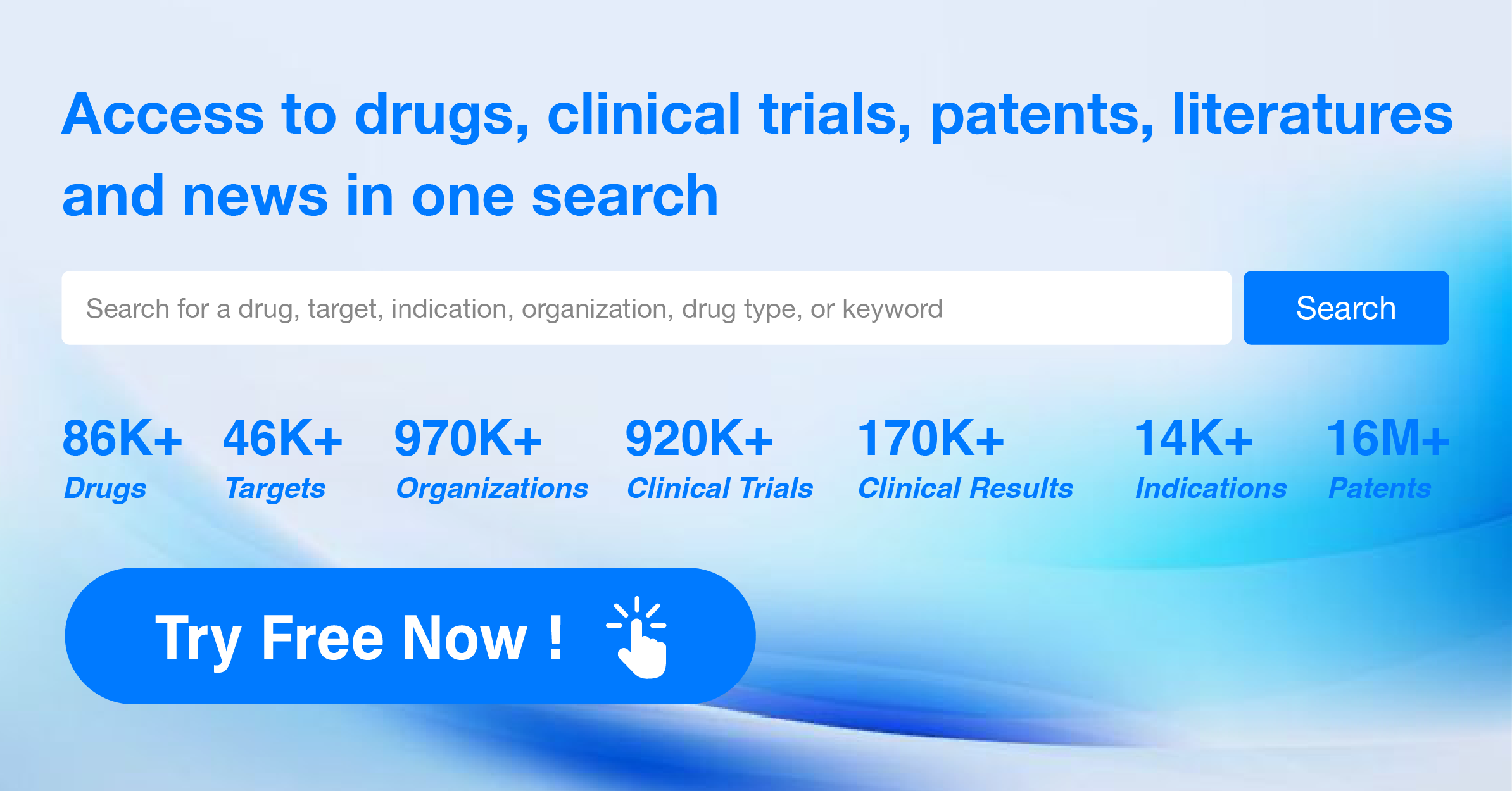Pharma Frontiers: Daily Digest of Global Pharmaceutical News - May 22
1.Atara Biotherapeutics Submits Marketing Application to FDA for Breakthrough Off-the-Shelf T-Cell Therapy
On May 21, Atara Biotherapeutics announced that it has submitted a Biologics License Application (BLA) to the U.S. FDA for tabelecleucel (tab-cel) as a monotherapy for the treatment of Epstein-Barr virus (EBV)-positive post-transplant lymphoproliferative disorder (PTLD). The patient population includes adults and pediatric patients over two years of age who have received at least one prior therapy. The press release noted that if approved, tab-cel would become the first allogeneic T-cell therapy approved by the FDA, as well as the first therapy approved to treat EBV-positive PTLD. Tab-cel is an allogeneic EBV-specific T-cell immunotherapy designed to target and eliminate EBV-infected cells. The BLA submission is supported by data from over 430 patients treated with tab-cel across various life-threatening diseases. Key clinical trial ALLELE demonstrated a 48.8% objective response rate (p<0.0001). Tab-cel has received Breakthrough Therapy Designation from the FDA for the treatment of rituximab-refractory EBV-positive PTLD. In November last year, Pierre Fabre Laboratories and Atara Biotherapeutics entered into a partnership, with Pierre Fabre securing global development and commercialization rights for tab-cel. In December 2022, the European Commission approved the marketing authorization for tab-cel under the brand name Ebvallo. Additionally, regulatory agencies in the United Kingdom and Switzerland have also approved the marketing of tab-cel. In these three regions, Ebvallo is approved as a monotherapy for the treatment of relapsed/refractory EBV-positive PTLD in adult patients and pediatric patients over two years of age who have received at least one prior therapy. EBV-positive PTLD is a type of lymphoma and a rare but potentially fatal hematologic cancer that may occur following solid organ transplantation (SOT) or allogeneic hematopoietic cell transplantation (HCT).
2.Innovent Biologics' IGF-1R Antibody IBI311 (Tislelizumab) Injection Submitted for Market Approval for the Treatment of Thyroid Eye Disease
On May 21, Innovent Biologics announced that the New Drug Application (NDA) for the injection of Tislelizumab has been accepted by the Center for Drug Evaluation (CDE) of China's National Medical Products Administration (NMPA) for the treatment of Thyroid Eye Disease (TED). Tislelizumab is a recombinant anti-Insulin-like Growth Factor-1 Receptor (IGF-1R) antibody. TED is an autoimmune disease that affects ocular tissues, often associated with Graves' Disease (GD), and is the most common orbitopathy in adults.
Currently, the pathogenesis of TED is not fully understood, but multiple studies indicate that orbital fibroblasts (OFs) found in muscle fibers and the loose connective tissue of the orbit play a key role in the proliferation of orbital soft tissues in TED. Several clinical treatment guidelines have recommended antibody biologics targeting IGF-1R as therapeutic options for TED, especially for patients with pronounced exophthalmos. Antibody biologics targeting IGF-1R can serve as a first-line therapy in such cases.
Tislelizumab is an IGF-1R antibody developed by Innovent Biologics, proposed for the treatment of TED. IGF-1R is a transmembrane tyrosine kinase receptor that plays a role in development, metabolism, and immune regulation, and is overexpressed in the OFs, B cells, and T cells of TED patients. Tislelizumab can block the activation of the IGF-1R signaling pathway mediated by IGF-1 and related ligands or agonistic antibodies, reducing the expression of downstream inflammatory factors. This action inhibits the activation of OFs, thereby reducing the synthesis of hyaluronic acid and other glycosaminoglycans, alleviating inflammation. It also inhibits the differentiation of OFs into adipocytes or myofibroblasts, reducing disease activity in TED patients and improving symptoms and signs such as exophthalmos, diplopia, and periorbital edema and congestion.
3.Johnson & Johnson’s IL-23 Inhibitor Achieves Primary Endpoint in Phase 3 Trial
On May 21, Johnson & Johnson announced the first batch of data from the Phase 3 maintenance study of its anti-IL-23 antibody Tremfya (guselkumab) in the QUASAR clinical trial for treating patients with moderate-to-severe active ulcerative colitis (UC). The analysis indicated that guselkumab achieved the trial's primary endpoint, significantly alleviating symptoms in UC patients. Johnson & Johnson submitted a supplemental Biologics License Application (sBLA) to the U.S. FDA in March this year, seeking approval for guselkumab in the treatment of adults with moderate-to-severe active UC. Ulcerative colitis is a type of inflammatory bowel disease (IBD), characterized by chronic inflammation of the colon.
QUASAR is a randomized, double-blind, placebo-controlled, parallel-group, multicenter Phase 2b/3 trial aimed at evaluating the efficacy and safety of the selective IL-23 inhibitor guselkumab in adult patients with moderate-to-severe active UC who have had an inadequate response or intolerance to conventional therapies, other biologics, and/or JAK inhibitors. The analysis showed that guselkumab met the primary endpoint. Specifically, 50.0% of patients with moderate-to-severe active UC who received subcutaneous injections of 200 mg guselkumab every four weeks achieved the primary endpoint of clinical remission at week 44 (p<0.001). Additionally, 45.2% of patients who received 100 mg guselkumab subcutaneous injections every eight weeks achieved this endpoint (p<0.001), compared to only 18.9% in the placebo group. Further analysis of patients who achieved clinical remission revealed that 67% and 71% of them achieved endoscopic remission at week 44 (defined as a Mayo endoscopic score [MES] = 0), indicating a normal appearance of the intestinal mucosa.
4.Gilead Sciences' Investigational Small Molecule Drug Seladelpar Shows Positive Results in Phase 3 Trial
On May 21, Gilead Sciences announced positive interim results from the ongoing ASSURE study. The analysis revealed that adult patients with primary biliary cholangitis (PBC) treated with its investigational drug seladelpar exhibited reduced biomarkers of cholestasis and inflammation, and an improvement in pruritus (itchiness). The U.S. FDA has accepted the New Drug Application (NDA) for seladelpar for the treatment of PBC and granted it Priority Review status. This includes use for the treatment of pruritus and for adult patients with non-cirrhotic or compensated cirrhotic PBC who have an inadequate response or intolerance to ursodeoxycholic acid (UDCA). The FDA is expected to announce the review outcome by August 14, 2024. Moreover, the UK's Medicines and Healthcare products Regulatory Agency (MHRA) and the European Medicines Agency (EMA) have also accepted seladelpar for marketing review.
Primary biliary cholangitis is a life-threatening autoimmune liver disease. Chronic immune-mediated attacks on bile ducts result in impaired bile flow, causing the retention of toxic bile acids within the liver, which can progress to liver fibrosis, cirrhosis, and liver failure. Other clinical symptoms include fatigue and pruritus. Approximately one in a thousand women over the age of 40 have PBC.
The ASSURE study is an open-label study designed to evaluate the long-term safety and efficacy of seladelpar. ASSURE enrolled adult PBC patients who previously participated in seladelpar studies. Key eligibility criteria included inadequate response or intolerance to UDCA. The majority of the patients in the ASSURE trial were female (94%), with a mean age of 59 years. Baseline characteristics included an average alkaline phosphatase (ALP) level of 270.5 U/L and a total bilirubin (TB) level of 0.75 mg/dL; 19% of enrolled patients met the criteria for cirrhosis. The study evaluated several predefined biochemical endpoints. The composite response endpoint included an ALP level below 1.67 times the upper limit of normal (ULN), a decrease in ALP of at least 15%, and a total TB level below the ULN.
5.Regeneron and Sanofi's Breakthrough Anti-Inflammatory Drug Achieves Phase 3 Results Published in NEJM
On May 21, Regeneron Pharmaceuticals and Sanofi presented the latest Phase 3 clinical trial data from the NOTUS study at the 2024 American Thoracic Society (ATS) International Conference. The trial evaluated the efficacy of Dupixent (dupilumab) as an adjunctive treatment for adult patients with poorly controlled symptoms of chronic obstructive pulmonary disease (COPD). The data indicated that Dupixent reduced disease exacerbation by 34% in patients whose symptoms remained uncontrolled despite standard care and who exhibited type 2 inflammation markers (blood eosinophils ≥300 cells/μL). According to the press release, these findings support Dupixent as the first new therapeutic option for COPD in over a decade and the first targeted therapy for COPD. The trial results were simultaneously published in The New England Journal of Medicine (NEJM). The data showed that the NOTUS study met its primary and key secondary endpoints. Compared to the placebo group (n=465), patients treated with Dupixent (n=470) experienced a 34% reduction in moderate or severe COPD exacerbations over 52 weeks (p<0.001). Improvements in lung function from baseline to week 12 were more than double, with the Dupixent group showing a pre-bronchodilator forced expiratory volume (FEV) improvement of 139 mL, compared to 57 mL in the control group (p<0.001). Lung function improvements were maintained at week 52. Health-related quality of life and the severity of respiratory symptoms showed improvement compared to baseline at week 52.
Dupixent is a fully human monoclonal antibody that inhibits signaling pathways of interleukin-4 (IL-4) and interleukin-13 (IL-13). It has previously been approved by the FDA for the treatment of various conditions, including atopic dermatitis, asthma, chronic rhinosinusitis with nasal polyposis (CRSwNP), prurigo nodularis, and eosinophilic esophagitis (EoE).
6.Amgen/AstraZeneca to Launch Phase 3 Trial for “First-in-Class” Therapy
On May 21, Amgen and AstraZeneca announced the results of their “first-in-class” monoclonal antibody Tezspire (tezepelumab) from a Phase 2a clinical trial for patients with moderate to very severe chronic obstructive pulmonary disease (COPD). The trial included patients with COPD, regardless of the presence of emphysema, chronic bronchitis, or smoking history, and covered a broad range of blood eosinophil counts (BEC) at baseline. Subgroup analysis revealed that tezepelumab could reduce the incidence of moderate or severe COPD exacerbations. The two companies are now planning a Phase 3 trial to evaluate the efficacy of tezepelumab in COPD patients. Preliminary results indicated that, at week 52, tezepelumab treatment reduced the annual rate of moderate or severe COPD exacerbations by 17% compared to placebo, although this was not statistically significant (90% CI: -6, 36; one-sided p-value = 0.1042). Importantly, this proof-of-concept study demonstrated a numerical reduction of 37% in moderate or severe COPD exacerbations in patients with a BEC ≥ 150 cells/µL when compared to placebo. It was found that approximately 65% of COPD patients have a BEC ≥ 150 cells/µL. In patients with a BEC ≥ 300 cells/µL, tezepelumab led to a numerical reduction of 46% in the rate of moderate or severe COPD exacerbations. Additionally, tezepelumab treatment showed a trend toward improvement in pre-bronchodilator forced expiratory volume in one second (FEV1) and total scores on the St. George's Respiratory Questionnaire (SGRQ). Compared to the placebo, FEV1 in the BEC ≥ 150 and ≥ 300 cells/µL groups improved by 63 mL and 146 mL, respectively, and SGRQ scores improved by 4.2 points and 9.5 points, respectively. The SGRQ is a measure of patient-reported health-related quality of life improvement.
7.Fosun Pharmaceutical MEK1/2 Inhibitor Proposed for Priority Review
On May 20, the official website of China's Center for Drug Evaluation (CDE) under the National Medical Products Administration (NMPA) publicized that Fosun Pharmaceutical's FCN-159 tablets are proposed to be included in the priority review list. FCN-159 is intended for the treatment of children aged 2 years and older with type 1 neurofibromatosis (NF1) related plexiform neurofibromas (PN). FCN-159 is an oral selective MEK1/2 inhibitor. According to the CDE website, this marks the second time FCN-159 has been proposed for priority review, following its prior consideration for the treatment of adult dendritic cell tumors and histiocytic tumors. In NF1, the RAS-MAPK (RAS-mitogen-activated protein kinase) pathway frequently exhibits abnormalities, promoting cellular proliferation and tumor growth along nerves. MEK is a validated therapeutic target for NF1.
At the 2023 Annual Meeting of the American Society of Clinical Oncology (ASCO), researchers presented results from the Phase 1/2 study of FCN-159 in pediatric NF1 patients. As of April 18, 2023, the investigator-assessed overall response rate (ORR) in the intent-to-treat (ITT) population was 44.6% with a median follow-up of 8.0 months (range 6.8-15.9 months). Among patients who had at least one post-baseline tumor assessment, the ORR was 46.8%. Eleven patients (57.8%) achieved stable disease (SD), and no patient experienced disease progression as of the data cutoff. Additionally, in 20 evaluable patients (those with a baseline overall tumor pain score ≥2 and at least one post-baseline tumor assessment), the mean pain score decreased by 2.20 points; compared to baseline, 11 patients (55.0%) exhibited a clinically significant reduction in pain scores by ≥2 points, with 8 patients (40.0%) achieving a pain score of 0. According to the researchers' conclusion, FCN-159 demonstrated good tolerability, controllable safety, and significant antitumor activity in pediatric NF1-related PN patients.
8.Compensation of $107.5 Million! AZ's Blockbuster Drug Allegedly Infringes Pfizer's Intellectual Property
On May 20, a federal jury in Delaware ruled that AZ must pay Pfizer $107.5 million due to the infringement of two of Pfizer's patents by AZ in the sale of its best-selling oncology drug Tagrisso. The plaintiffs in this case were Pfizer's subsidiary Wyeth and Puma Biotechnology. These two companies first sued AZ in 2021, alleging that AZ infringed on two of Wyeth’s patents, each of which was related to a “method for treating gefitinib-resistant cancer.”
According to the lawsuit, AstraZeneca’s non-small cell lung cancer (NSCLC) drug Tagrisso received FDA approval in 2015, ten years after the filing of the “provisional applications” for the two patents. Puma Biotechnology and Wyeth contend that Tagrisso's product labeling "encouraged" direct infringement and further claimed that AstraZeneca was aware of patent protection.
Following pertinent disclosures, Pfizer acquired Wyeth in 2009 for $68 billion, obtaining the kinase inhibitor Neratinib, developed for the treatment of Her2-positive breast cancer. Subsequently, in 2011, Puma Biotechnology licensed the metastatic Her2-positive breast cancer drug Neratinib from Pfizer and took full responsibility for its global development and commercialization. In 2017, Neratinib was approved by the FDA under the brand name Nerlynx for the prevention of recurrence in women who previously received treatment with Roche’s Herceptin (trastuzumab).
Earlier this year, the court removed Puma Biotechnology’s plaintiff status in this case. Nonetheless, as indicated in documents submitted to the U.S. Securities and Exchange Commission on May 17, Puma Biotechnology stated that it "retains contractual rights to recover monetary damages" in the AZ lawsuit. Due to related disclosures, Puma Biotechnology’s stock price rose approximately 17% on Monday morning, reaching $4.80.




